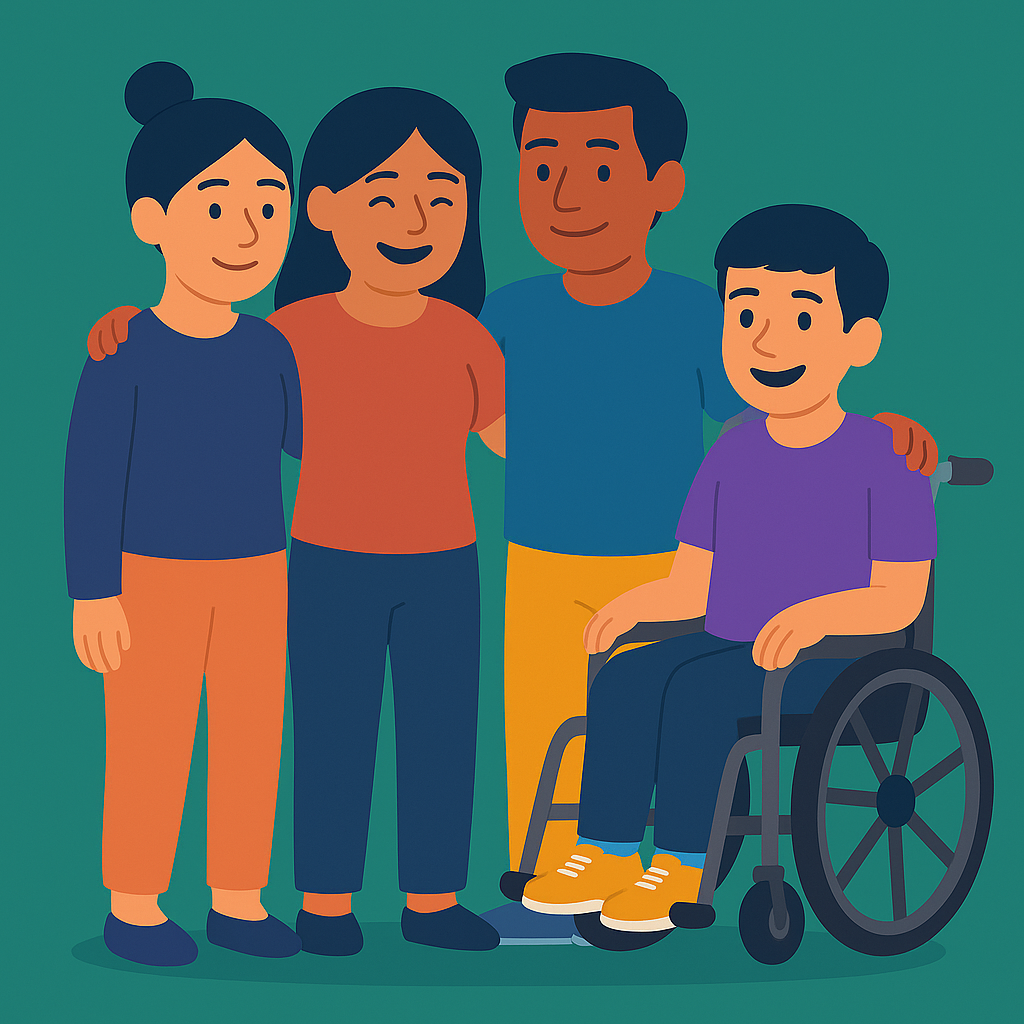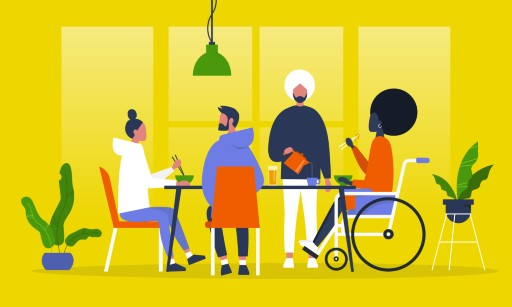
What does being disabled mean?
Being disabled means having an impairment. It means you have an extra challenge to overcome. You’re disabled if you have a physical or mental impairment that has a ‘substantial’ and ‘long-term’ effect on your ability to do everyday activities.
In other words, it may take you longer to do something or you may need someone to help you. It doesn’t define you. Disabled people may experience things in their community to others that can impact their health and well-being.
This page looks at some of the issues affecting young people with disabilities and how to access support to grow to be yourself and have fun.
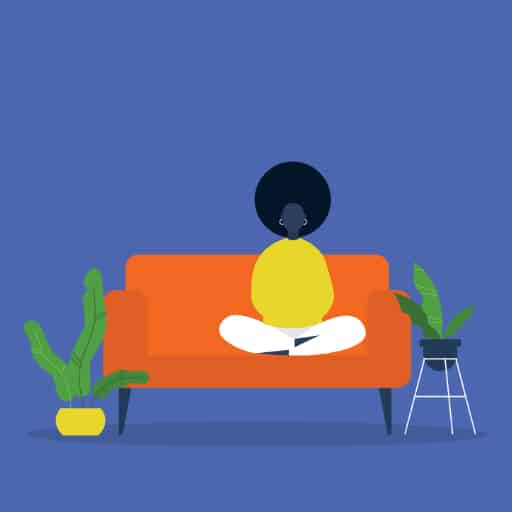
Some issues that may affect you as a young person with disabilities
These may include:
- Reactions from family and friends
- Targeted by dishonest adults to do things for them – maybe of a criminal or sexual nature.
- Difficulties understanding the way your disability is impacting you. Am I normal for feeling like this?
- Abuse and bullying at school/college/work
- Keeping things bottled up inside
- Difficulties getting by day to day
- Prejudice, discrimination and hate crimes.
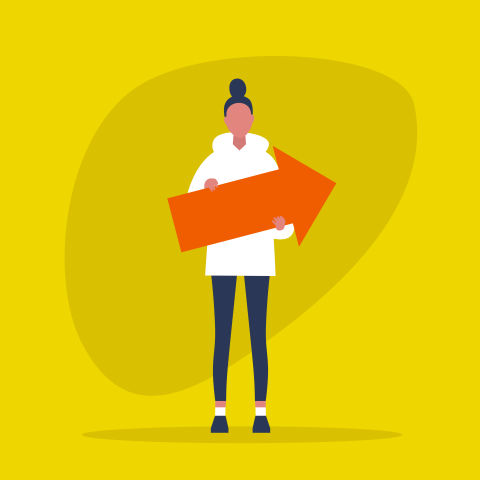
Some things to consider about being disabled
Some people have little or no understanding of disability and this may affect their ability to have a relationship with you. This is their problem not yours. This may be the case if you become disabled through an illness or accident not born with a disability.
It may be difficult to start a conversation about your disability but it can help you have a closer and more honest relationship with family and friends. It is up to you IF you want to do this (or who you speak to) but remember that some people may not understand or be hostile.
Sometimes people may seem a bit over the top trying to help you. Their intentions are good and they mean well – may just be a tad painful or even embarrassing.
Thankfully, on the whole most people are good. However if you do experience discrimination or bullying there are people out there who can help you. Experiences of such discrimination can have a really bad impact on our well-being and mental health.
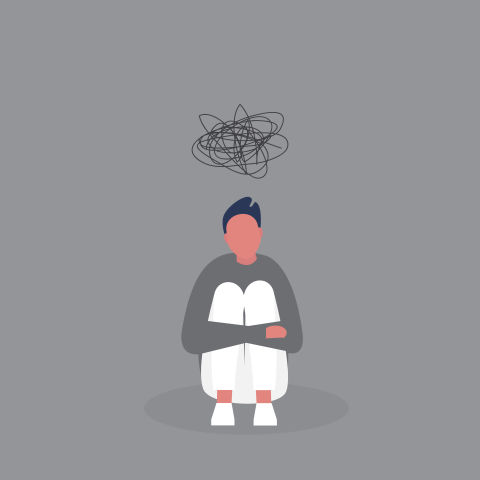
Discrimination and bullying
Having a disability is known as a protected characteristic. The Equality Act 2010 means that the law protects people with protected characteristics from discrimination and being unfairly treated for being different.
Remember, you have the right to be treated fairly and with respect. Go to this page if you want to know more about your rights and how you can challenge discrimination.
Find out more about protected characteristics here.
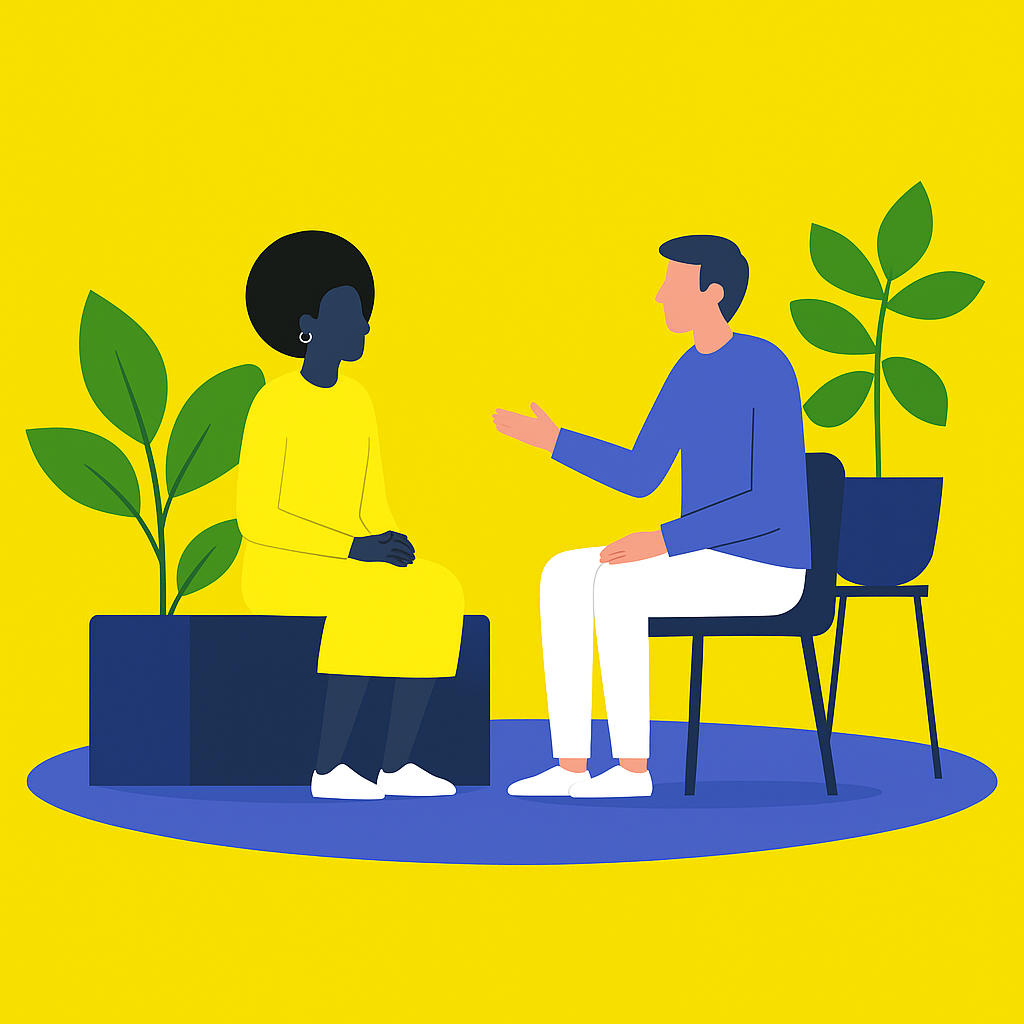
Asking for help
- You might not like asking but people who care about you will want to help
- Ask a trusted friend, Parent/Carer or family member
- Professional – Youth Worker/Doctor/Social Worker/ Teacher or School Nurse
- Community Support Group
- Trusted Online Support Group or website
Believe in Yourself
- Focus on the positive
- Understand and challenge negative/bad feelings
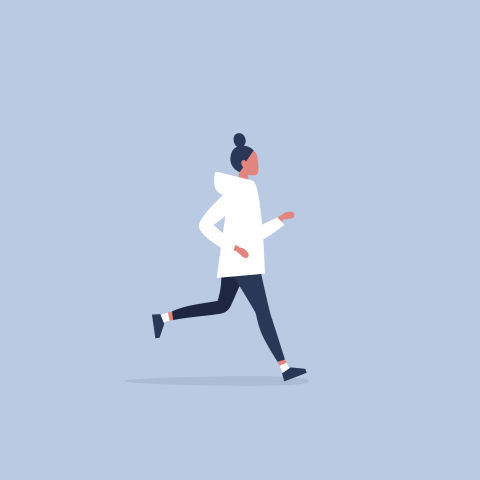
Take time out
Stress-busting relaxation: Stop what you are doing, look out of the window, let your shoulders drop, stretch – allow your mind to calm down.
Deep Breaths: think of a lovely place you have been to, keep taking deep breaths, and take time to relax in this place.
Do something you enjoy:
- Be active: still go outdoors every day to get some fresh air
- Go for a walk, run, cycle or do exercises at home that work for you
- Be creative: do drawing, painting, doodles, make masks, and birthday cards, upcycle an old t-shirt or jacket
- Learn a new craft or activity
- Listen to music: something that is calming & makes you feel good
- Watch films, read a book or listen to audio books (App – Audible), magazine
- Take photos and make a collage out of the new and old ones
- Keep a journal, diary or blog

Look after your health
💙 Self-Care Tips for Living with a Disability or Long-Term Condition
- Be kind to yourself – it’s okay to rest and ask for help
- Get enough sleep and try a regular routine
- Move in ways that feel good (yoga, swimming, seated exercises)
- Eat balanced meals and drink plenty of water
- Practice mindfulness – deep breathing, meditation, or calming music
- Talk to supportive friends, family, or groups who “get it”
- Set boundaries – say no to things that drain your energy
- Make your space easier with equipment or small changes
- Break tasks into smaller steps to save energy
- Do hobbies you enjoy – reading, painting, music, gaming, etc.
👉 Remember: Self-care isn’t selfish. You deserve it.
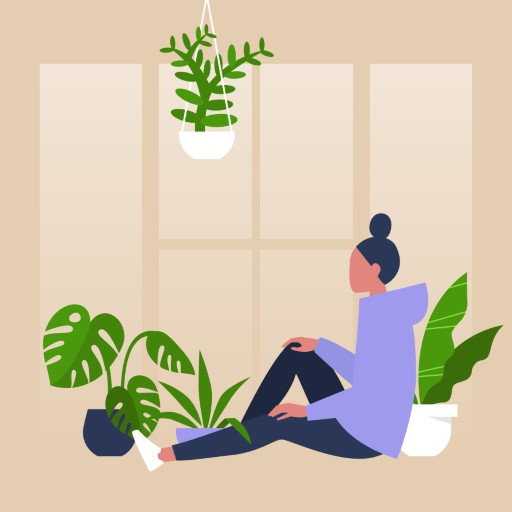
Believe in yourself and be proud!
🌟 Positive Affirmations for Self-Care & Strength
- My disability does not stop me from achieving.
- I am proud of my independence and resilience.
- I am always learning new skills and trying new things.
- I have extra determination to reach my goals.
- I belong to a strong and supportive community.
- Disability is not a barrier – attitudes are changing.
- I have conquered challenges that make my life fuller.
- I protect my energy by setting boundaries.
- I am kind to myself and deserve rest.
- I fuel my body with good food, water, and movement.
- I can pause, breathe, and find calm when I need it.
- I am supported and never alone.
- I face negative feelings with confidence and courage.
Disability Resources for 16-19 year olds

Childline

No Panic

Wakefield Discovery College


